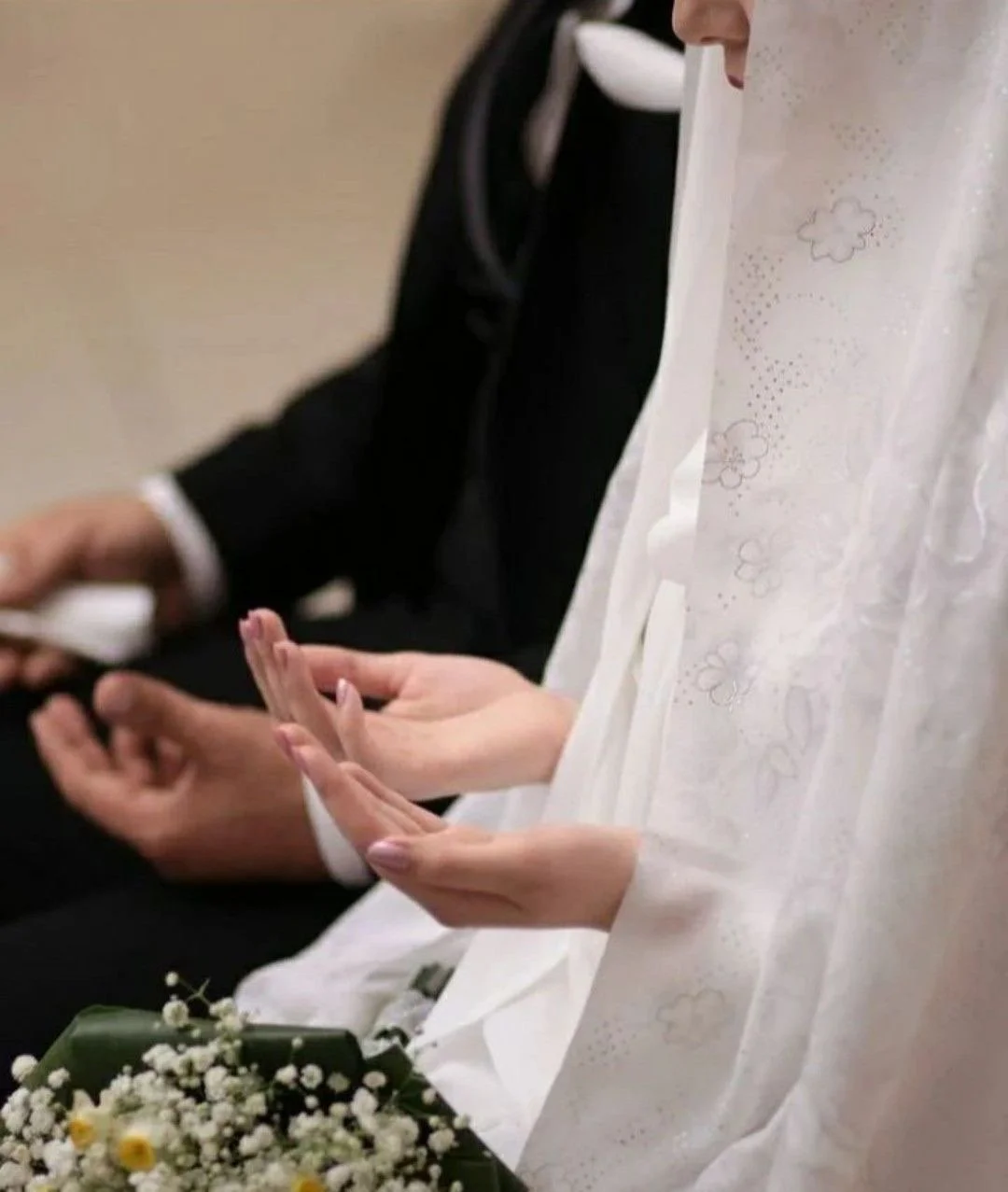Part 1: Do I have to stop being me when I get married?
The Holy Quran presents humanity in both single units and groups, and establishes rights and responsibilities based on these designations. Thus, in some places it emphasizes the individual, stating, “Allah does not impose upon anyone a duty but to the extent of his/her capacity; in his/her favor shall be what he/she has earned, and against him/her shall be (the evil) he/she has wrought” (2:286), while in others it addresses the collective, as in, “That is a nation that has passed away; theirs is that, which they have earned, and yours is what you have earned; you shall not be questioned for what they had been doing” (2:134). Allah points out the state of accountability in the same manner, He says, “…and whosoever transgresses the limits set by Allah, he/she has wronged him/herself…”(65:1), while in others He says, “The likeness of what they spend in this life of the world is as the likeness of a wind wherein is intense cold which strikes the tilth of a people, who have wronged themselves, and destroys it…”.(3:117)
Thus, Islam provides us with a detailed blueprint for our personal and interpersonal lives, and in doing so, it seeks to create balance and parity. A believer’s primary goal is to discharge their obligation to Allah and to fulfill His right, and demonstrate devotion to Him in a manner that is unparalleled. This takes precedence over everything, and at its root, becomes the impetus for how we act in this world and interact with others. A believer—woman or man, wife or husband, child or parent—is first and foremost, a servant of Allah. As such, any act of duty to another person is carried out from the core intention of pleasing Him. There is something very freeing in this because it releases us from the burden of interpersonal labels, artificial standards and worldly expectations.
Upon this intrinsic scaffold, each believer builds a series of layers which define their obligation and devotion to not only others, but themselves. This frames their understanding of the rights of others as well as the rights of their own self, respectively, and simultaneously delineates violation against others and their own self. Herein lies the challenge of being human, and more importantly, a believer. This is because it is very hard to appropriately balance these sometimes conflicting components. For example, a person may choose to fulfill their own desires or achieve their own goals at the cost of fulfilling the rights of another, or—and this is more common than you think—sacrifice for a significant other and perform a disservice to themselves in the process. Although Islam stresses the importance of self-sacrifice, it does not do so at the cost of justice, equity and balance, even if it has established and underscored certain hierarchies (e.g., parent to child).
While this challenge exists in every human relationship, marriage represents a unique dynamic, mainly because it is structured to be a partnership.
The Holy Quran says, “And of His signs is that He created spouses for you from yourselves, that you may repose in them, and He has set between you love and mercy; verily there are signs in this, for people who reflect.” (30:21)
This is such a beautiful state, to live in tranquility with another person who is “from you”. It makes one feel that the true marital bond can cause what was once two separate individuals to become a perfect amalgamation. This is what is needed to foster a loving, harmonious and peaceful family. It is the very nature of this unit that builds strength and resilience, and a collective identity, first by the wife and husband, and then with their children.
Unfortunately, at times, in the quest to develop and maintain this unit, some of us lose our individual selves. This can happen out of a desire to sacrifice, which—although inherently lofty—can lead to imbalance and inequity. It is undeniable that marriage results in a new set of obligations that are enacted on the premise of companionship, love, and sometimes even romance. However, those new obligations do not completely offset existing ones. Remembering that one is first obligated to Allah; next, they do not stop being someone’s daughter or son once they are married. Instead, they just reformulate the new sets of rights and responsibilities. They rebalance the equation.
At the same time, marriage does not mean the rights of one’s own self are somehow nullified, or even reduced, and the same conscious effort that is applied to restructuring marital responsibilities with those to the family (parents, siblings, etc.), must be applied to the self. Islam does not ask us to lose ourselves in our marriage, nor does it encourage us to forfeit our rights, hopes, desires and goals. As believers, we are asked to act from a place of devotion to Allah to shift our conception of “me” to include “us”, and re-envision our identities to encompass both. This is what creates an unbreakable bond and dynamism in a marital relationship, and fosters creativity and zeal in the children. Hence, marriage becomes a canopy under which each individual unit thrives.
How beautifully the Quran describes it, your spouse is “… a garment for you and you are a garment for them”. (2:187)

